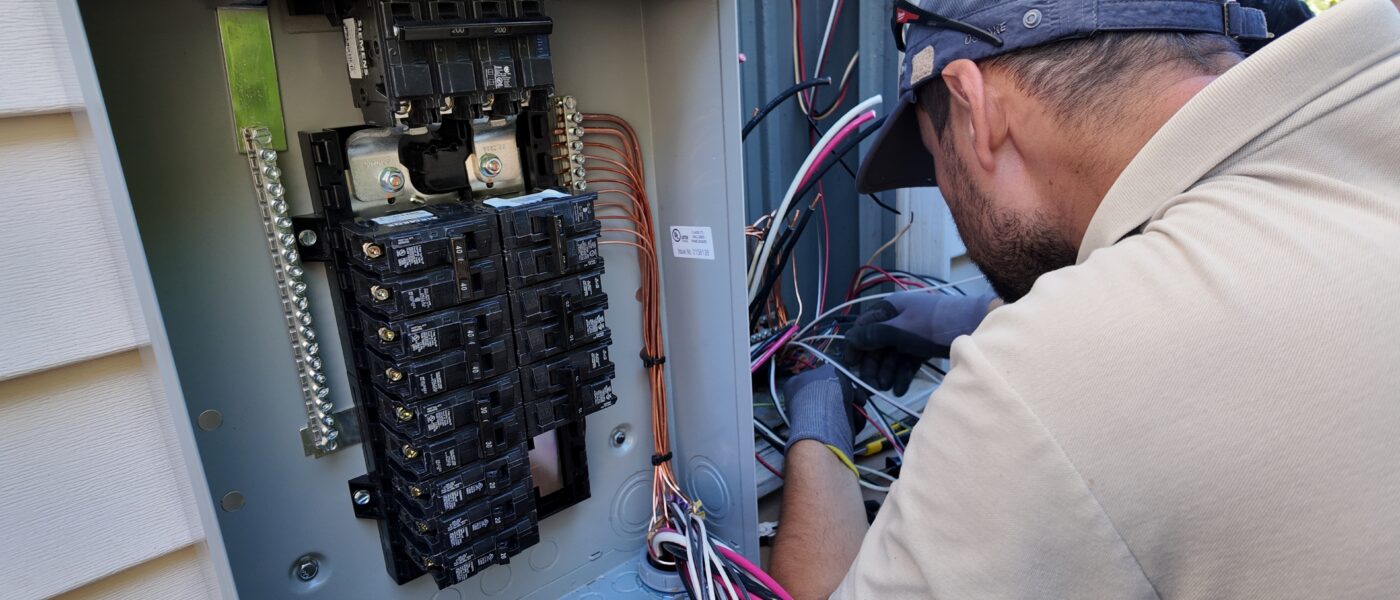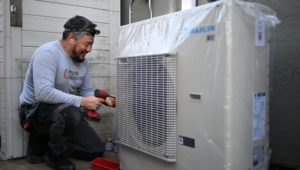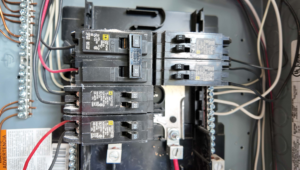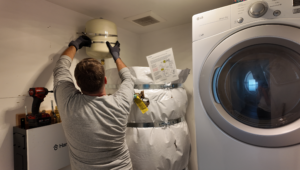Imagine that your lovely house smells like it’s on fire. Or you can see some kind of sparkling near the outlets. In this article, you will learn what is a short circuit, how to recognize it, and why you should contact Fuse Service in such cases—we provide professional services in CA for diagnosing and eliminating short circuit electricity.
Electrical Short Circuit Definition & Meaning
What is a short circuit? In simple words, it’s the system’s reaction to the electrical current choosing an unintended path.
The current has low resistance and does not reach the main load, such as a lamp or household appliance. As a result, it increases sharply and leads to overheating, equipment failure, and even fire.
According to Wikipedia’s definition of short circuit, it occurs when current flows through an alternative route, causing an overload (which is basically almost the same, but in other words). This phenomenon is truly one of the most dangerous faults that may happen in home wiring.
What Causes a Short Circuit in Your Home Electrical System
A short circuit is a 100% result of some kind of malfunction. Below you can read about the most common causes of short circuit.
Faulty or Damaged Wiring
The first two things that come to our minds when we talk about the causes of short circuit are old wires and poor insulation. Even a small crack can cause the wires to touch and create an arc.
Loose Connections
Loose wires or contacts in outlets, switches, and panels can cause sparking. That’s ultimately an electrical short circuit reason.
Moisture or Water Intrusion
It commonly may happen in bathrooms or basements. Moisture is a perfect conductor. Even the smallest water leak you can even imagine may be a reason for a short circuit electricity.
Rodent Damage
Rodents often cause electrical short circuit by damaging the insulation on wires in walls or attics.
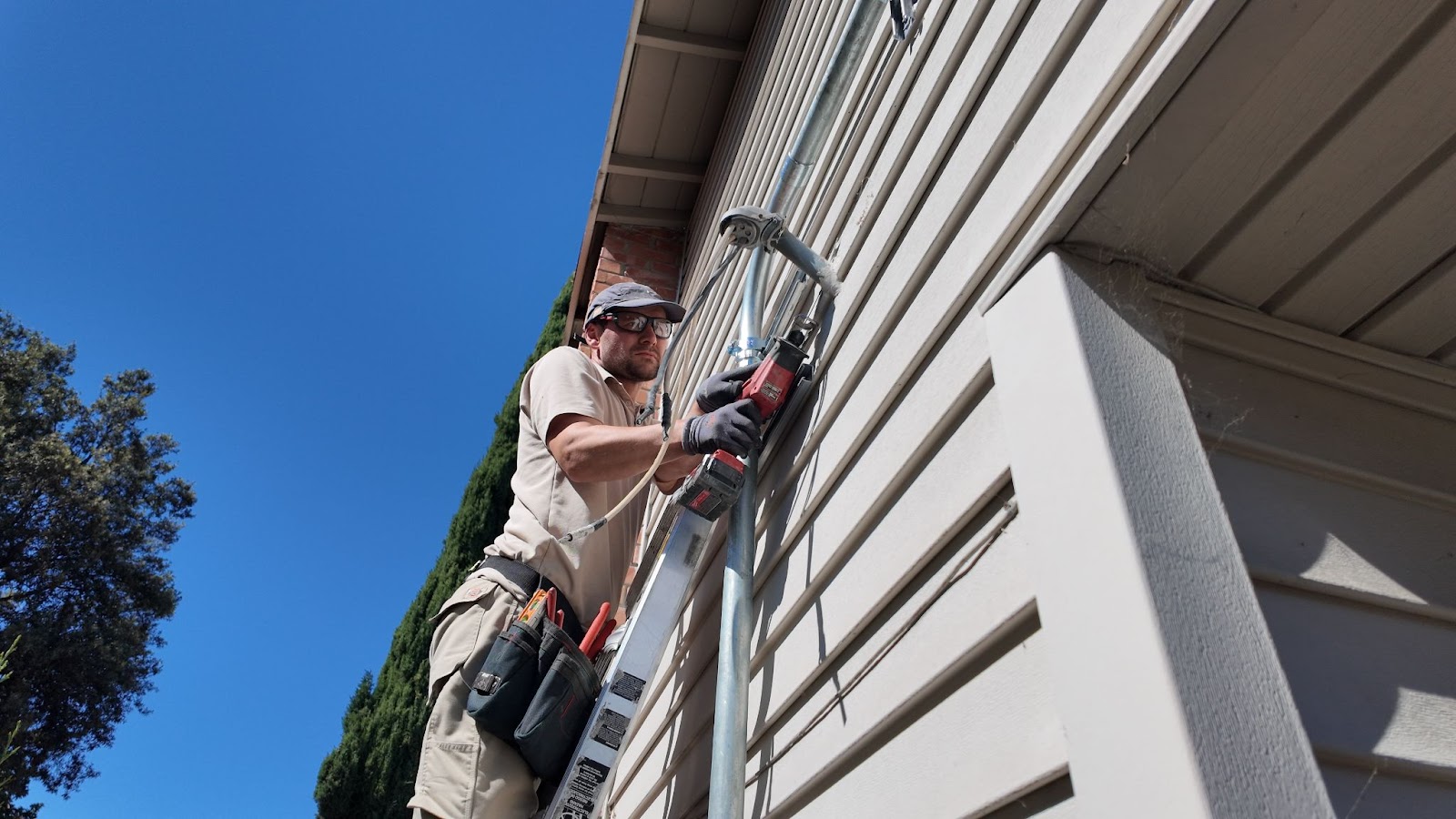
Different Types of Short Circuits Explained
It is impossible to predict these factors, let alone list them all. But here are the three main ones:
Normal Short Circuit
What happens in a short circuit like this one? It occurs when the phase and neutral wires are directly connected.
Ground Fault
This kind of emergency occurs when a conductor comes into contact with the ground (e.g., the body of a device). It is especially dangerous in rooms with high humidity.
Arc Fault
An arc fault between damaged wires is quite a popular cause of fires. The highest risk is in old buildings or in spaces where wiring was installed with zero attention to details.
Why a Short Circuit Is Dangerous
Why is a short circuit always a risk?
- High temperatures can melt insulation and cause a fire;
- It can damage household appliances;
- There is a risk of electric shock;
- Wiring and shields can burn out;
- There is a threat to life and property.
Some people want to avoid short-circuiting issues and buy a generator. Nice choice, but Forbes warns: it’s crucial to calculate the total load of all appliances in advance. Otherwise, you risk underestimating your home’s needs and being left without power at a critical moment.
Signs of a Short Circuit
How can you quickly tell if there is a short circuit at your place right now? Here’s a quick checklist. See it through to find out the most signs of a short circuit:
- The circuit breaker keeps tripping;
- The smell of burning;
- Darkening or melting around outlets;
- Flickering lights or power outages;
If you see one or even several of these signs of a short circuit, contact a San Jose electrician immediately.
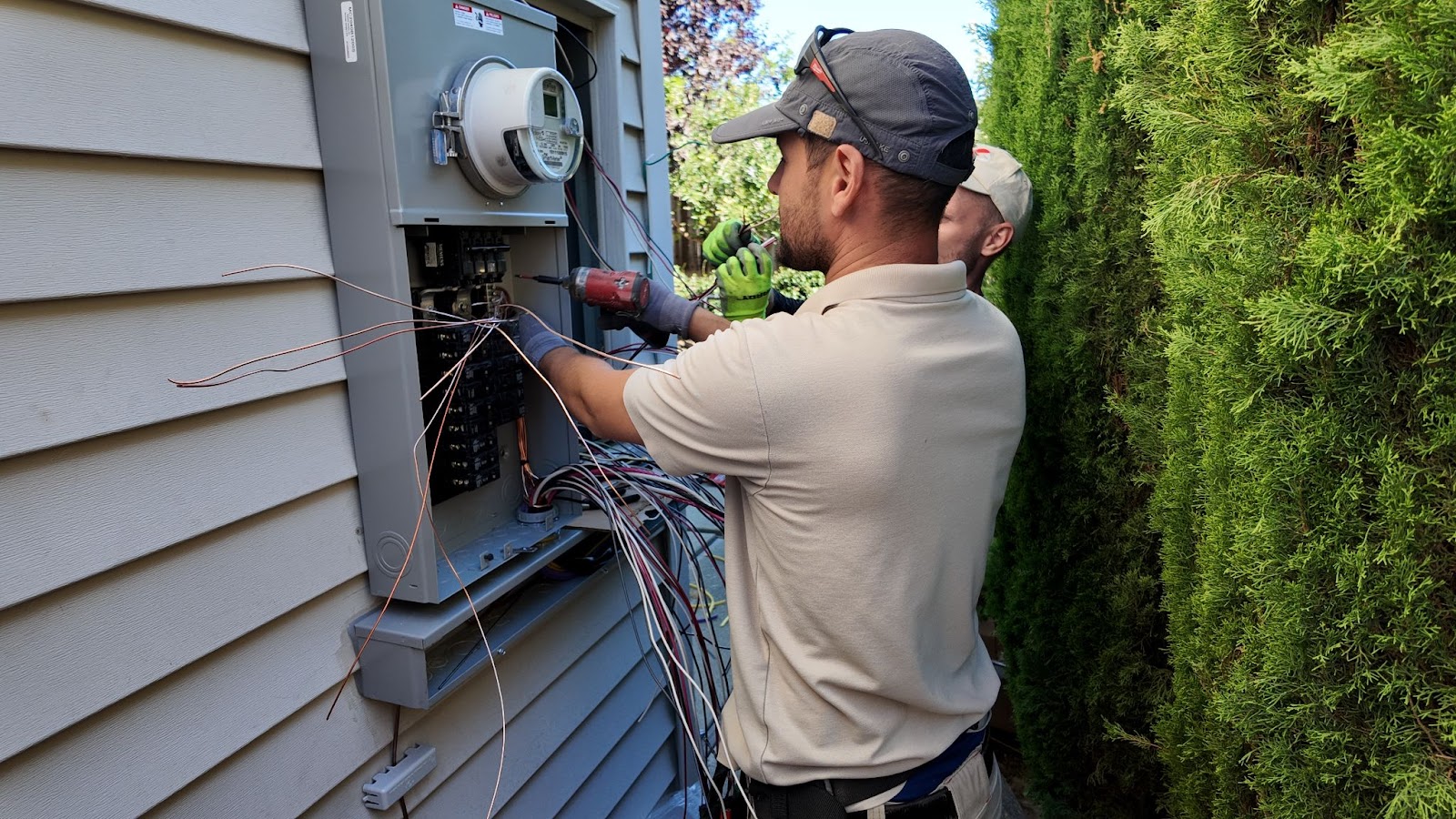
How to Prevent Short Circuits
When it comes to preventing electrical problems, better late than never. We’ve already figured out what happens in a short circuit, but how can we prevent it?
- Conduct an annual electrical inspection.
- Install RCDs and arc fault circuit interrupters (AFCIs).
- Regularly invite local residential electricians for diagnostics.
By the way, Fuse Service offers electrical wiring inspections in apartments and private homes.
| Mistake | Possible Consequence | How to Prevent It |
| Overloading outlets | Overheating, melted wires | Use surge protectors with built-in safety |
| Using damaged extension cords | Sparking, arcing, short circuit | Replace cords immediately |
| DIY wiring without experience | Loose connections, arc faults | Call licensed professionals like Fuse Service |
| Ignoring moisture near outlets | Ground faults, short circuit | Install weatherproof covers and GFCIs |
When to Hire an Electrician
That’s what Max, our EPA-certified electrician at Fuse Service, says:
“We often deal with the consequences of short circuits… I mean, from melted sockets to burning panels. The main thing is to detect the problem before disaster strikes.”
If you can see any warning signs or simply want to ensure safety, invite a specialist:
- When circuit breakers trip for no reason;
- When buying a new home;
- After flooding or fire.
If a short circuit has already occurred, turn off the power and contact Fuse Service for urgent electrical repair service—this will save you money, time, and peace of mind. Just trust us. You’ll see for yourself.
